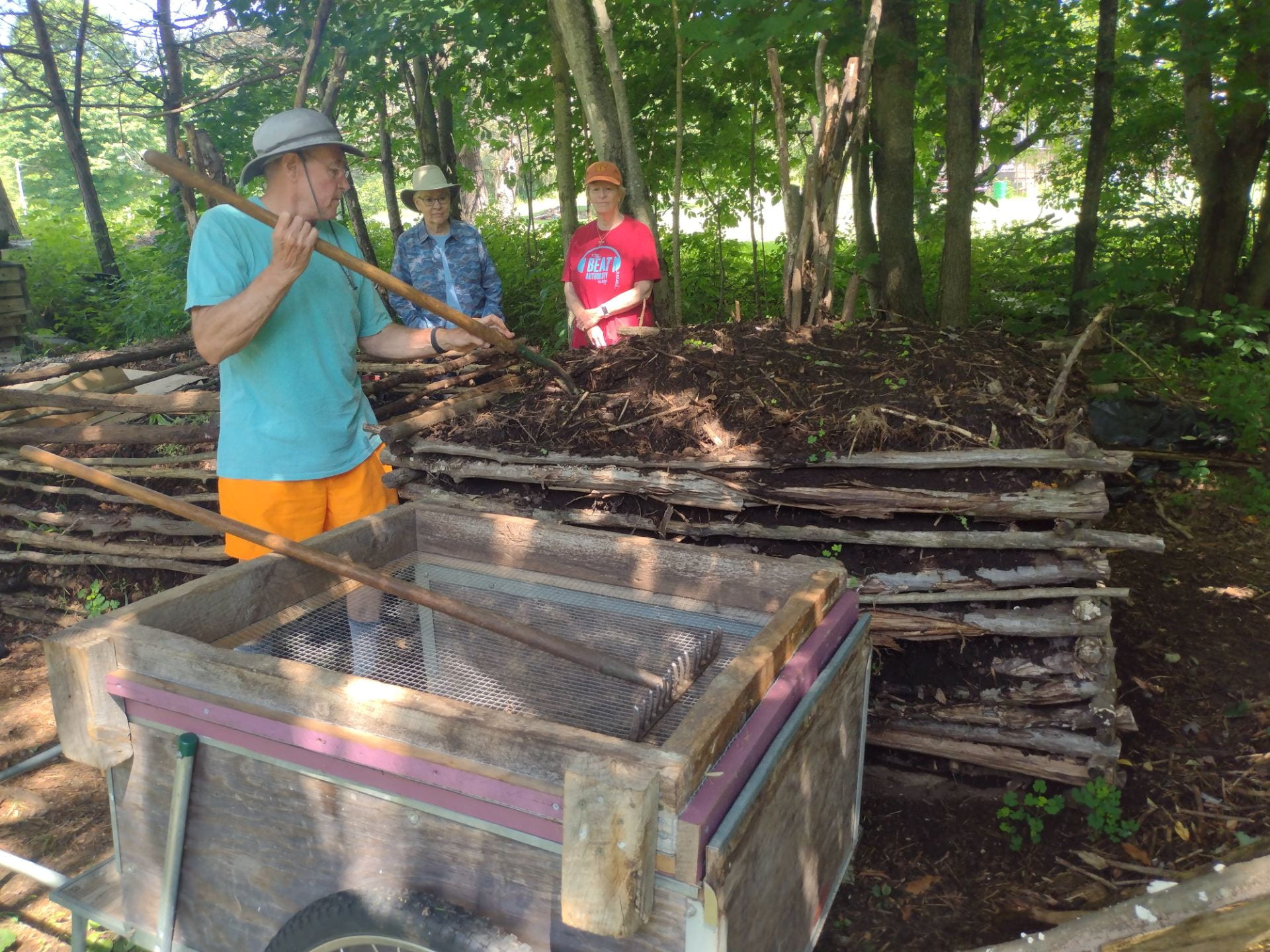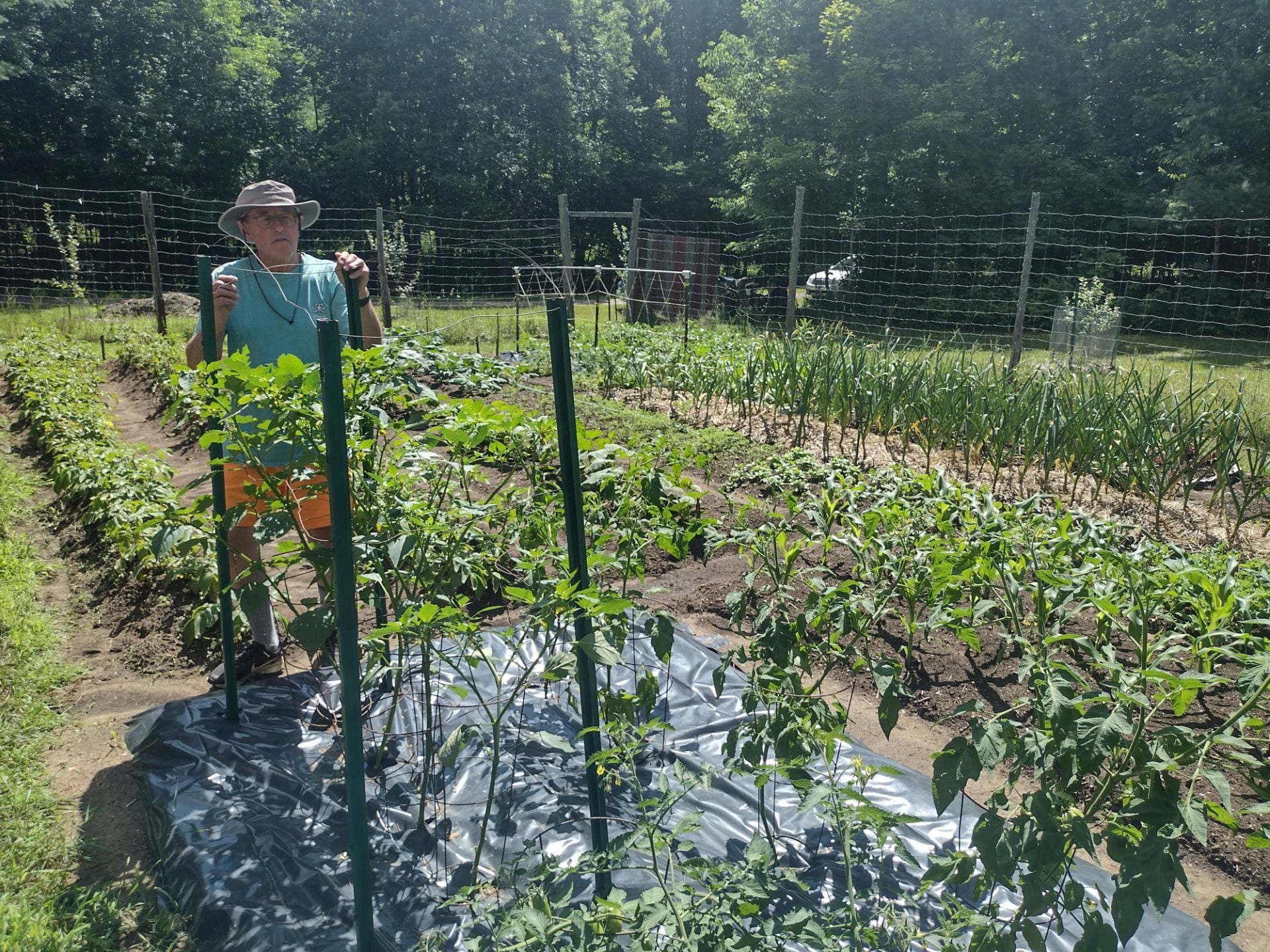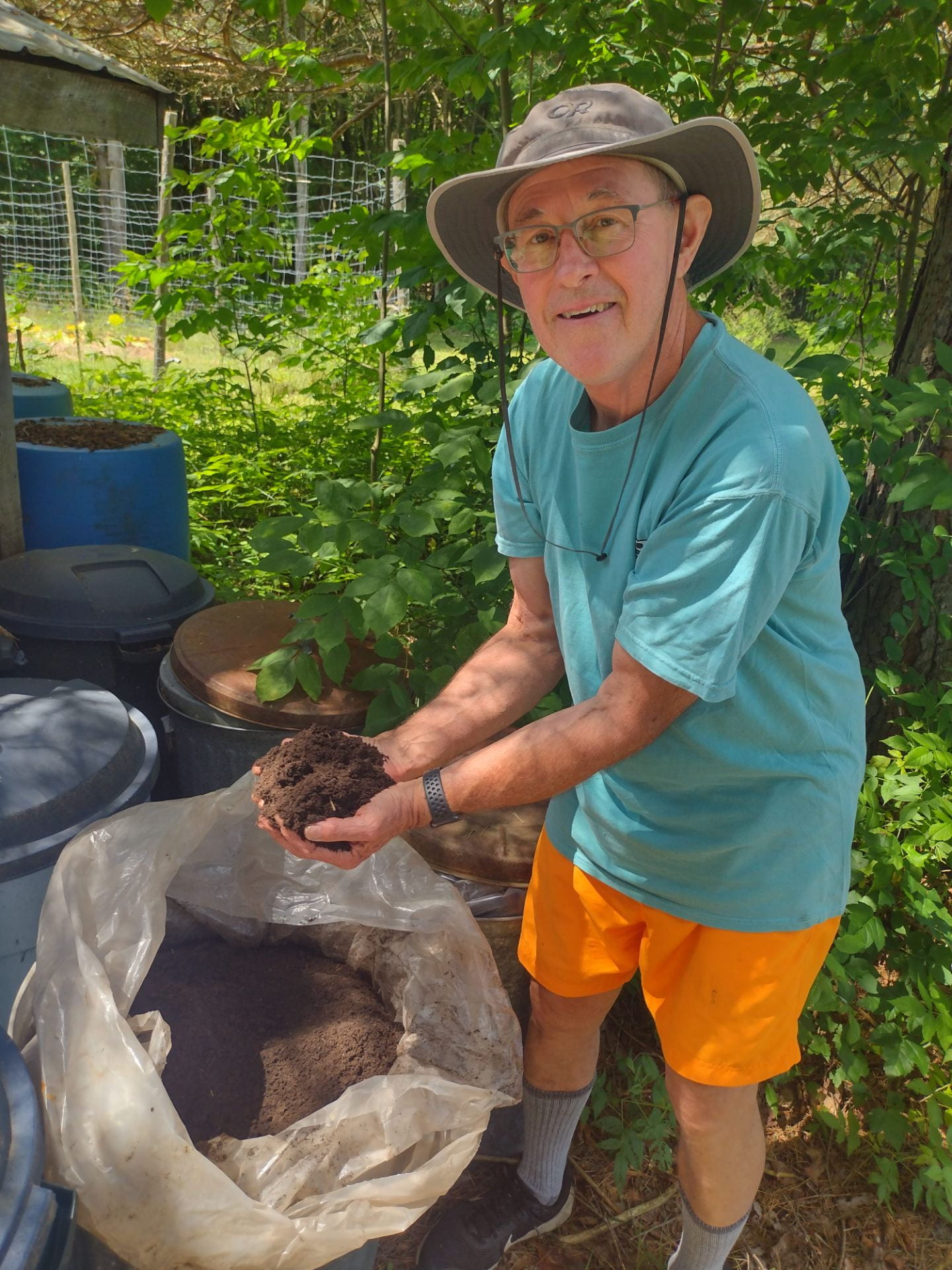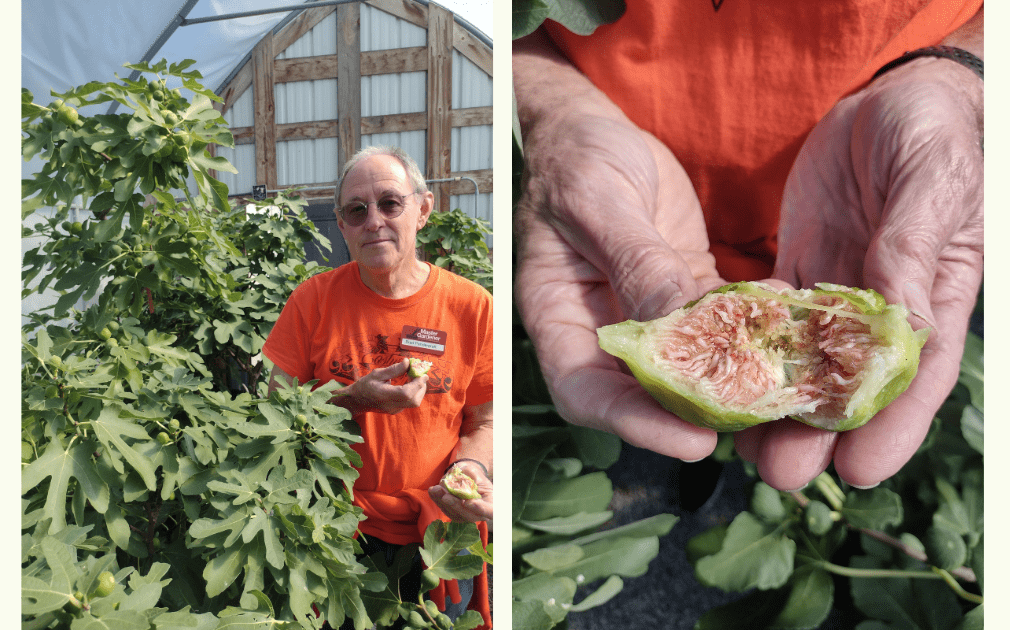Can you remember the moment you decided to become a gardener, or when you realized you had become one?
When I was a young kid in the Texas panhandle my parents bought an extra strip of land beside the house we built for a garden. My Mom was the gardener and my dad did the rototilling; pretty traditional, but it was the 1950’s. Later we moved to Gunnison, Colorado where there had been a frost recorded on every day of the year, so as you can imagine gardening was difficult there, but my Mom did it. Seeing her perseverance over the years even in unpredictable conditions was motivating. I later decided I wanted to become a homesteader.
What tool can’t you do without in the garden / what is a garden invention or plant variety you wish would be developed?
When I first started gardening I bought tools from a company called “Smith and Hawkens”. They imported forged tools from England. I love them. I fork my entire 40’ by 60’ garden using the four-tine digging fork and their long-handle shovel is my favorite shovel.
What plant do you wish you’d never planted in your garden?
Tomatillos are a mixed bag as much of life is a mix of good and bad. I love serrano tomatillo salsa, but if you compost the fruits of the tomatillos you end up with baby tomatillo plants everywhere, coming up like a carpet covering the garden beds. On the plus side, the plants add organic matter to the compost.

What is a unique project or endeavor you’ve taken on in your garden?
I am very interested in what has been called the “French Intensive” method of gardening, with raised beds and close plant spacing. I try to achieve “canopy” where the plants grow like trees in the forest and shade the ground below, which keeps the soil moist and suppresses the weeds. This can be difficult in the North Country because of our wet climate; planting so closely encourages mildew and other disease challenges. My soil is very sandy and I have to work hard to increase the humus in the soil by making and applying large amounts of compost.

What benefits do you gain from gardening?
I value the good organic food for my family with great flavors and health benefits.
Why did you want to become a Master Gardener Volunteer?
I am a lifetime learner and always enjoyed school and college. I didn’t even know about the service hours when I first heard about the program, but I love teaching so it has worked out well. My wife kept calling me a master gardener, and I kept telling her that I wasn’t because I had not completed the program…so I did it to gain the title honorably.
In what ways do you serve as a MGV?
When I changed careers later in life and sold my environmental consulting company, I was looking for a job. I found out I could use my geology and art BA degree to get a masters in education, so I finished my masters and got a job teaching Earth Science in high school and night classes in the Geology Department at SUNY Potsdam. I think the love of teaching I discovered, along with my years of gardening experience, will serve me well as a MGV. In the past year I taught classes about Tree Identification, Growing Nightshades, and Eating for Maximum Nutrition, plus assisting at many more.
What do you grow and what are your specialties in the garden?
The list is long! I grow hot pepper, sweet peppers, three types of tomatoes, tomatillos, garlic, spinach, arugula, green beans, parsley, corn, spaghetti squash, butternut squash, basil, carrots, three types of kale, turnips, radicchio, lot of varieties of lettuce, beets, yellow squash, zucchini, onions, potatoes, Swiss chard, and Brussels sprouts. It keeps me out of trouble as much as that is possible.
What are you learning about now in the gardening realm, and what do you want to learn more about?
I am learning more about growing onions and radicchio successfully, and about gut health in relation to eating 30 plants a week in a book called “Food for Life” by Tim Spector. I also want to learn how gardening increases health and extends our life spans. I certainly expect it to extend mine!
Brad Pendergraft came to the North Country in 1979 as a homesteader and has gardened ever since, including 27 years in sandy soils! He is a retired teacher of geology and earth science. He uses natural techniques, and large batch composting has become one of his specialties, along with growing hot peppers for sauce.
